Covid: Prisoner self-harm rising amid tighter restrictions
- Published
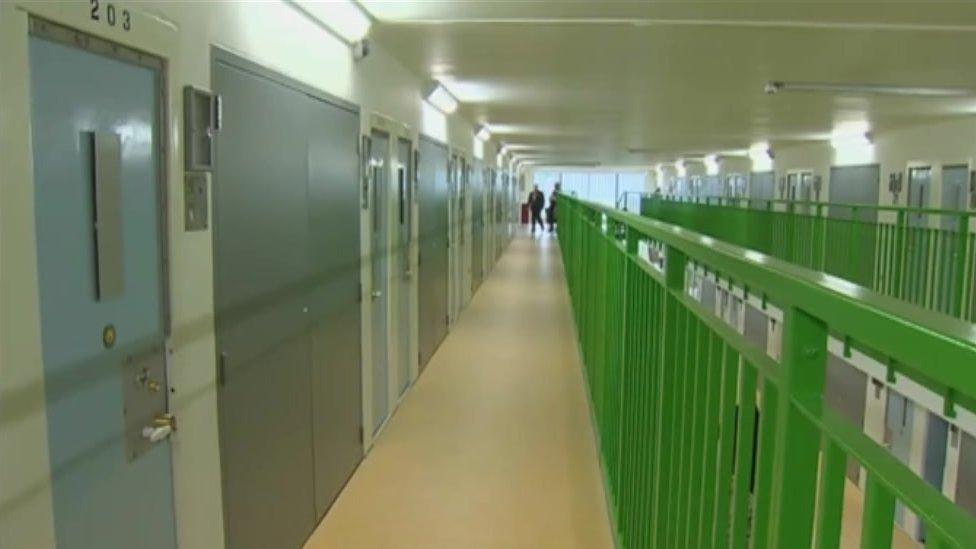
Prisoners are facing tighter rules to prevent the spread of Covid-19
Self-harm and violence have risen in Welsh prisons as tighter restrictions continue, according to prison monitors.
The Independent Monitoring Board (IMB) Welsh representative said prisons had until recently been successful in keeping Covid-19 rates low, but the "consequences have been enormous".
Steven Cocks said the IMB, which monitors conditions in prisons, had massive concerns about this continuing.
The Prison Service said efforts were being made to support prisoners.
Figures analysed by criminologist Dr Robert Jones, from the University of South Wales, suggest self-harm in Welsh prisons rose by 14% from January to June this year, compared with the same period last year, although the levels fell in the Cardiff and Swansea institutions.
At Berwyn in Wrexham there were 664 incidents of self-harm between January and June, a rise of 69%. At Parc in Bridgend the number was 662, a rise of 15%.
By contrast, across all prisons in England and Wales, the figure dropped by 8%.
The Ministry of Justice said the rise in self-harm incidents at Berwyn is likely to be linked to remand prisoners being accepted at the prison since December last year - those new to custody are more vulnerable to self-harm.
They have also seen a 35% rise in population (compared to January-June 2019).
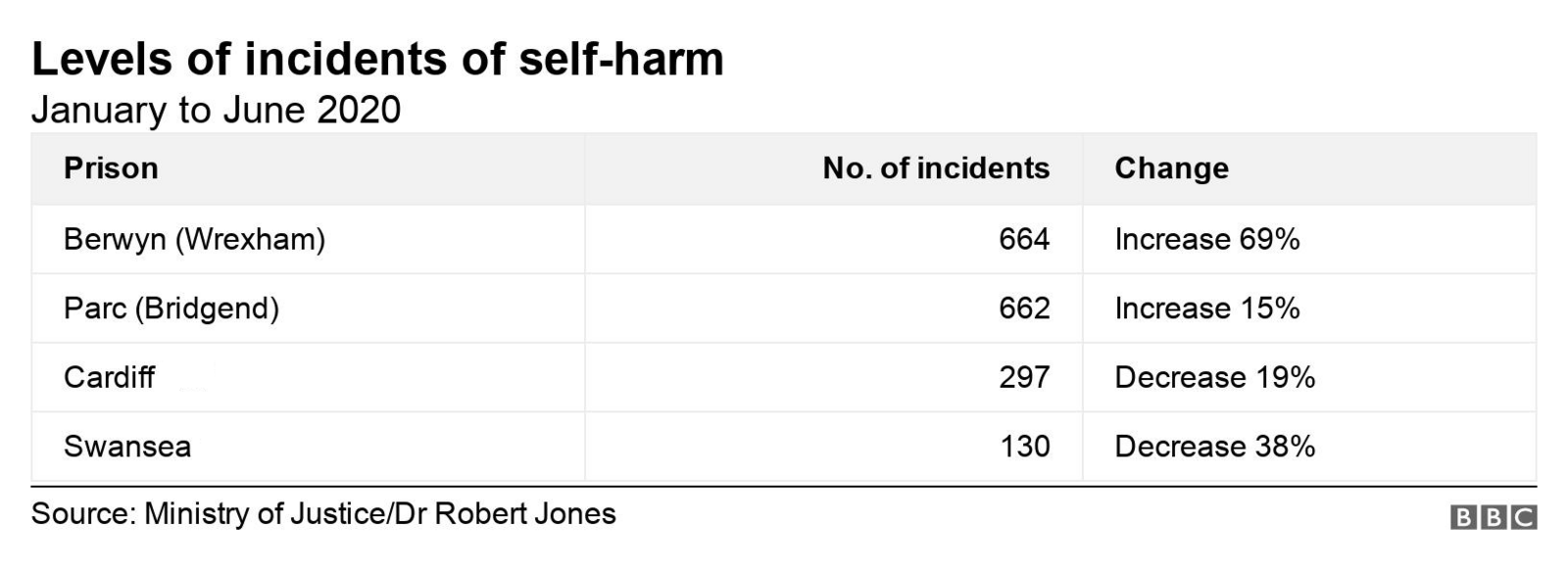
Mr Cocks said: "If you lock somebody up for 23 hours a day - and in Wales that is the average - that has an impact on people's mental health. It really is quite detrimental.
"I think the whole thing is really starting to fray around the edge. Though things like self-harm initially went down there is clear evidence now that's increasing."

'It's taking a toll on the whole family'
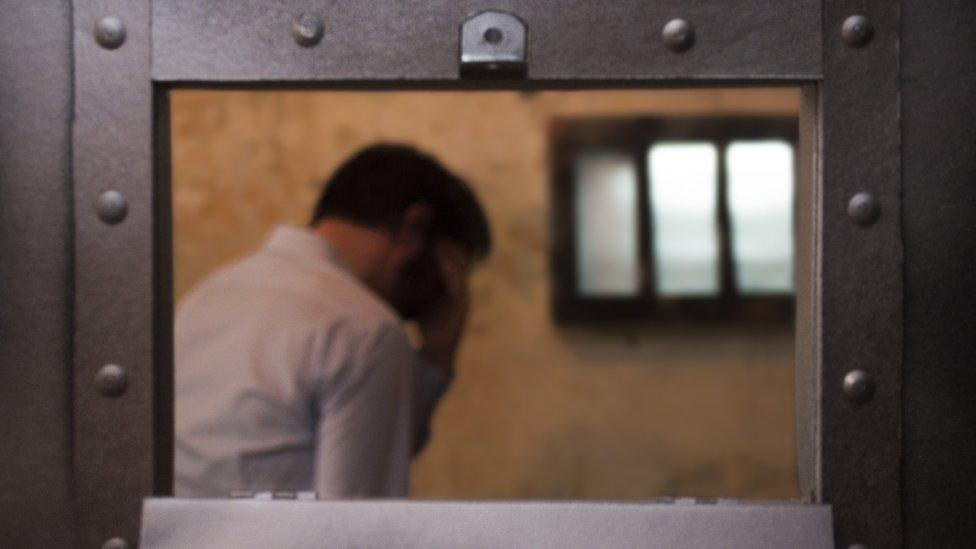
One parent who spoke to BBC Wales said they have not been able to see their son since February, which is taking a toll on the whole family.
"We speak to him every day on the phone, but it's just not the same and it's causing me huge anxiety too.
"It really affects the families, not being able to see their loved ones. And now some of the lads on his wing have tested positive," said the parent, who asked to remain anonymous.
"I know he's feeling down about it, but he's got to keep strong for us.
"We use Purple Visits [video calls] once a week which have helped a lot - they are brilliant - but not being able to see him is so frustrating."

Mr Cocks explained there was a wider impact on the risk of reoffending.
"It's enormously difficult at the moment for the prison to actually put in place measures to address the men's offending behaviour," he added.
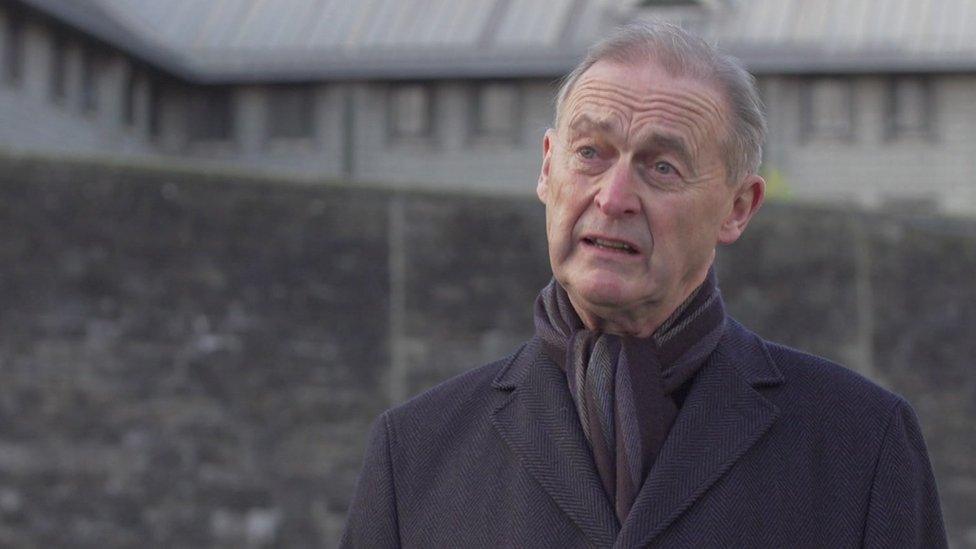
Steven Cocks fears it is more difficult to put in place measures to reduce future reoffending
He added that as IMBs look to recruit more members, their role has become crucial.
"We're the only independent group of people that is going in on a weekly basis," he said.
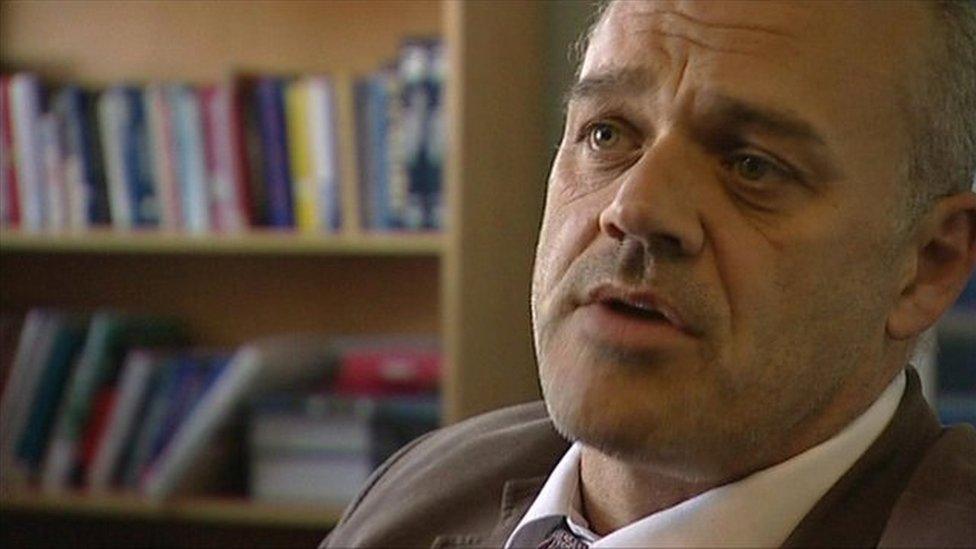
Prof Mark Bellis said people in prisons were cut off because of the pandemic
Prof Mark Bellis, from Bangor University, was involved in research published over the summer which highlighted the links between high rates of childhood adversity and self-harm among Welsh prisoners.
"Dealing with these problems is critical and even more so in times like pandemics where people's mental health is really at risk," he said.
"Those people in prisons, who already have some fragility around mental well-being and may be cut off even more, because of the pandemic and because of their personal situations, unfortunately they're in a position where it's much more easy for them to suffer and sometimes that will come out as self-harm or even attempts at suicide."
A Prison Service spokesman said: "Our decisive action saved many lives but we appreciate the impact on prisoners.
"This is why prisons in Wales have taken measures including providing in-cell education and activities, easing visiting restrictions where safe, and quickly rolling out family video calls.
"While levels of self-harm fell at prisons like Cardiff and Swansea, we will continue to work hard to make all our jails as safe as possible during this uniquely challenging time."
- Published12 December 2020
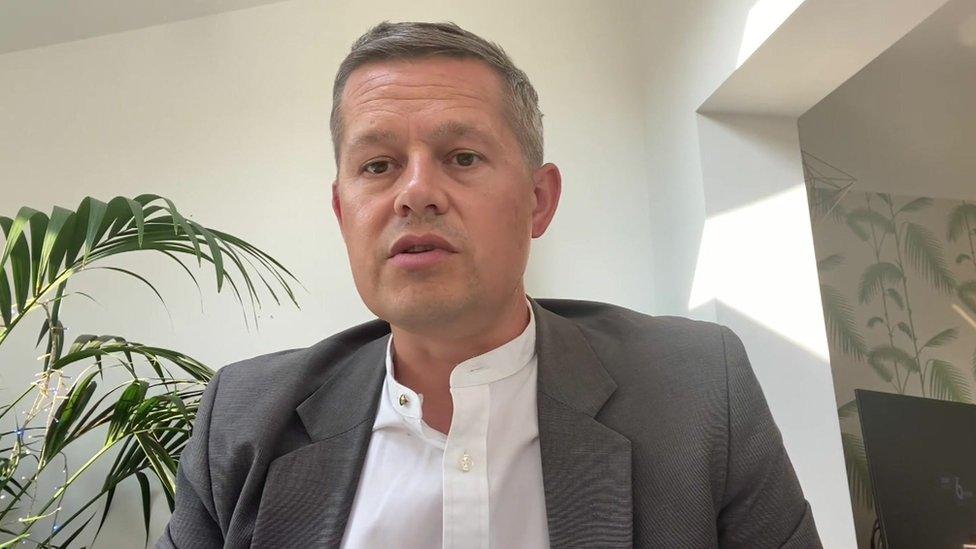
- Published16 September 2020
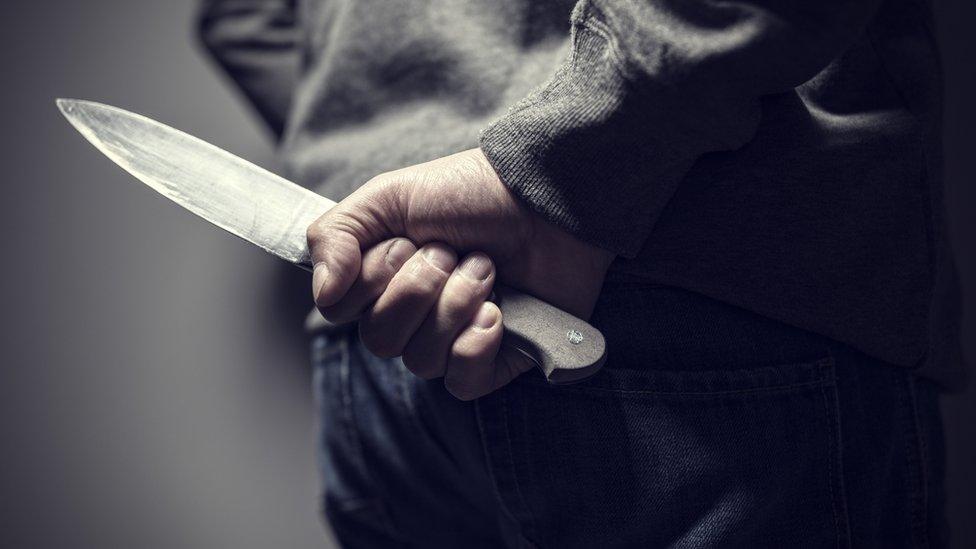
- Published16 September 2020
